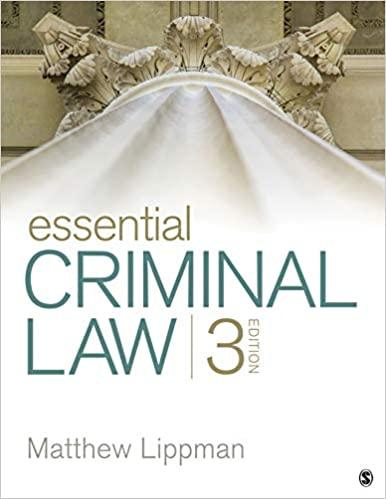Question
Based in the reading below: Is an at will policy beneficial for the employee as well or just employer? Who is an at will employee?
Based in the reading below: Is an at will policy beneficial for the employee as well or just employer?
Who is an "at will" employee?
Employment at-will refers to a doctrine that allows and employer or employee to terminate employment relationship at any time with or without cause. All states are employment at-will states; this means that technically all states follow the doctrine.
There are three major exceptions to the employment at-will doctrine. These exceptions address terminations that do comply with the doctrine, but that are considered unjust:
- Public policy:States that an employee is wrongfully discharged when the termination is against a public policy of the state. I.e. an employee cannot be terminated for filing a worker's comp claim, reports the employer for wrongdoing or for refusing to conduct unlawful activity at the request of the employer, just to name a few.
- Implied Contract:Applies when an implied contract is created between employer-employee.A common occurrence is the content and representations made in employee handbooks that could make an implied contract, such as stating that the employee will be terminated only "for cause" or that the employer will follow specific disciplinary procedures before terminating an employee.
- Covenant of good faith:States that the employer's decisions are subject to a "just cause" and that termination made in bad faith or malice is prohibited.
Some states recognize some of these exceptions and only six states recognize all three of them, while 4 states do not recognize any of them.
I live in Florida, which happens to be in the last four that do not recognize any of these exceptions. My employer particularly, which employs 600+ people at the present time, has a very structure human resources department. We have specific protocols to follow in reference to terminations, the downfall is that these protocols are not part of a handbook, nor provided to employees at time of hiring.
In our company in order to terminate a regular (non-management) employee the supervisor/manager must provide one verbal disciplinary report on the first offence, followed by a written disciplinary report on the second offence that will lead to termination on the third offence. The afore-mentioned protocol is mostly related to tardiness, absenteeism, fail to properly clock-in and out etc. But like I said this is not set on stone, meaning that if an employee fails to comply with company policies, rules and regulations and the offence is considered unacceptable the employee can be terminated immediately, it all depends on the offence.
When department re-structure had been done and the company had been forced to eliminate positions, they always try to offer available positions in other areas, sometimes subject to salary change, but terminating is always the last resource. When terminations had been imminent (without cause and as part of company restructure) the company encourages the employee to apply for unemployment benefits and they always grant it, as well as any PTO available is paid, though no severance package is provided. The latter only applies to contracted individuals like physicians and upper management personnel.
I really enjoyed this topic because it is related to my actual position and something I actually deal with on a daily basis.
References:
Miller, R. L., & Hollowell, W. E. (2019).Business law: Text & exercises. Boston, MA: Cengage Learning.
Step by Step Solution
There are 3 Steps involved in it
Step: 1

Get Instant Access to Expert-Tailored Solutions
See step-by-step solutions with expert insights and AI powered tools for academic success
Step: 2

Step: 3

Ace Your Homework with AI
Get the answers you need in no time with our AI-driven, step-by-step assistance
Get Started


